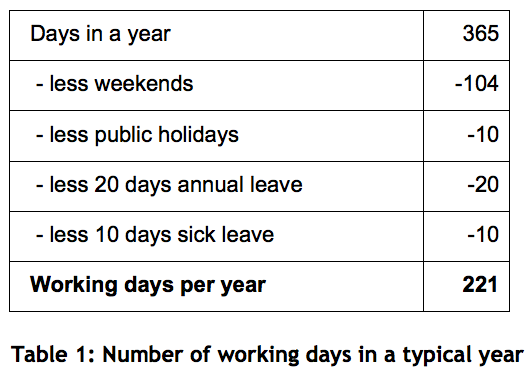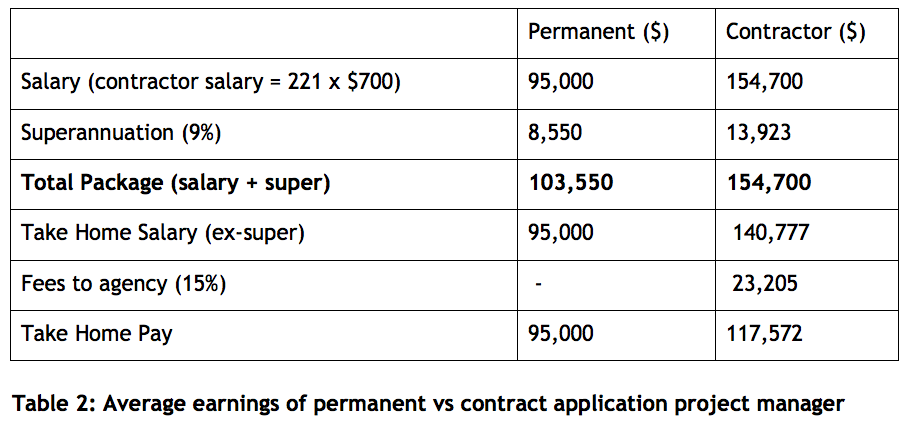Contracting versus permanent: Income as a project manager
One of the things I value the most about a career in project management is the flexibility and opportunity it affords. Project managers are in demand across a range of industries and projects, meaning you can work across a range of industries or specialise in an area of interest.
But there’s also flexibility in terms of the way that you work and whether you prefer to work as a contractor or a permanent resource. This choice impacts a number of things, from your take-home pay to your job security and career options, meaning it can be a difficult choice to make. Below, I have explained the differences between the pay scales.
Comparing project manager incomes
For many people, the higher earning potential of contracting is one of its biggest drawcards. I often hear anecdotal evidence of contractors earning up to 50% more than their permanent counterparts. But there are a number of factors that influence this, which are worth exploring.
Data from the latest PeopleBank employment survey shows that, for example, an Application Project Manager in Melbourne could earn a permanent salary of $95–150,000 per annum (depending on industry and experience) versus $700–1,000 a day contracting.
So how do these compare as annual salaries? Let’s start by looking at the lower end of the range. Remember, that as a contractor you only earn income for the days that you work so if you’re sick or on holidays, you don’t get paid. Also, you might have to pay your own superannuation.
So, let’s do the maths on how many days a contractor would work if employed for a full 12 months.
Based on this conservative estimate of 221 working days a year, we can now calculate the equivalent salary for a permanent versus contract employee.
Before you get stuck into the numbers, it’s important to note that the table below is a general example only. The numbers will change depending on the situation.
For example, you might be able to bypass working with an agency, so instead of outlaying that expense, keep some of those fees yourself. Or you may have different superannuation arrangements. Nevertheless, the below should serve as a good starting point and guide to decision making.
The above assumes permanent salaries exclude superannuation whereas contractors pay their own superannuation out of their daily rate. Also, agency fees paid by contractors vary from 0% to 15-20%.
As you can see, a project manager on the lowest contract rate who is paying very high agency fees still earns almost 25% more than a permanent employee on the lowest end of the average annual salary range. As you move towards the higher end of the average ranges, the earning advantages of contract positions become even more pronounced.
The above excludes any other benefits that might be included in a permanent employment contract, such as bonuses, long service leave entitlements or redundancy pay outs.
Winner: Contracting
The contracting versus permanent series looks at the various factors that may encourage a project manager into a permanent or contract role according to:



